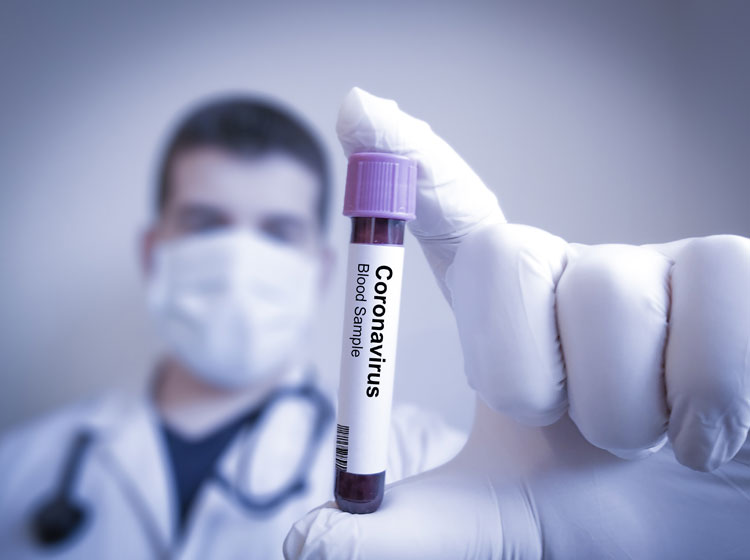India plans to create a database of detailed case records of patients with the novel coronavirus disease (Covid-19) from public and private hospitals across the country to gain fresh insights into myriad factors that might have influenced their treatment outcomes.
A National Task Force for Covid-19 has asked a 10-member medical panel to establish a patients’ database to enable doctors to understand better why a small proportion of patients develop severe disease, and design new treatment strategies to minimise deaths.
The Indian Council of Medical Research will oversee this database established through a so-called India Covid-19 Clinical Research Collaborative Network that will rely on doctors in dozens of hospitals across the 30 Covid-19-affected states to submit online case histories of their patients.
An early analysis of 4,000 patients in India has suggested disease patterns similar to those in other countries. Most Covid-19 deaths, 86
per cent in India, have occurred among patients with underlying health disorders like diabetes, high blood pressure, or heart disease and 63 per cent have occurred in patients 60 years or older. The vast majority of Covid-19 patients show mild symptoms that do not require hospital-based treatments.
“A major objective of this network is to use patients’ records to understand in detail the disease progression, particularly in patients with severe illness,” Raman Gangakhedkar, head of the ICMR’s epidemiology and infectious diseases division, told The Telegraph. “We would also like to prioritise molecules and develop protocols to take molecules into clinical trials.”
Pooling patients’ data increases the reliability of the information gained.
The Union health ministry had until 5pm on Wednesday recorded 5,274 confirmed Covid-19 cases among whom 411 have recovered and 149 have died.
Doctors in China, France and the US have already initiated such studies that are revealing new information from small clusters of patients.
One study led by Pavan Bhatraju at the University of Washington in the US, for instance, has suggested that only half the patients had fever at the time of hospital admission, indicating that fever may not be a useful criterion to determine the severity of illness.
“Diagnostic algorithms (rules) that require fever for Covid-19 testing may delay diagnosis,” Bhatraju and his colleagues wrote in the study published last week in the New England Journal of Medicine. The majority of the 24 patients in their study had diabetes or chronic kidney disease before admission.
“We’re learning something new about this disease every week,” said Sanjay Pujari, a senior infectious disease specialist in Pune and member of the task force on clinical research. “Through this network, we’re hoping to focus on patients most at risk and observe how treatment influenced outcomes.”
“We’d particularly be looking at disease mechanisms — how does the disease advance in patients to severe illness and how might this process be stalled,” Pujari said.
Although there are no proven medications to treat Covid-19, health authorities in multiple countries, including India, have recommended the use of an antimalarial hydroxychloroquine and an antibiotic azithromycin.
Doctors also use a range of other supportive medications to treat patients who develop severe disease and advance to acute respiratory distress in efforts to reverse the course of the disease.
An analysis of pooled patients’ data could also help medical experts tweak — alter the doses or timings of specific drugs — such interventions to try and improve patients’ chances of survival.
“This is a new virus — so generating data is extremely important,” said O.C. Abraham, professor of infectious diseases at the Christian Medical College, Vellore.
The panel would also review available evidence and identify research priorities. “One of our tasks will be to identify new treatment protocols for Covid-19 patients,” Abraham said.











